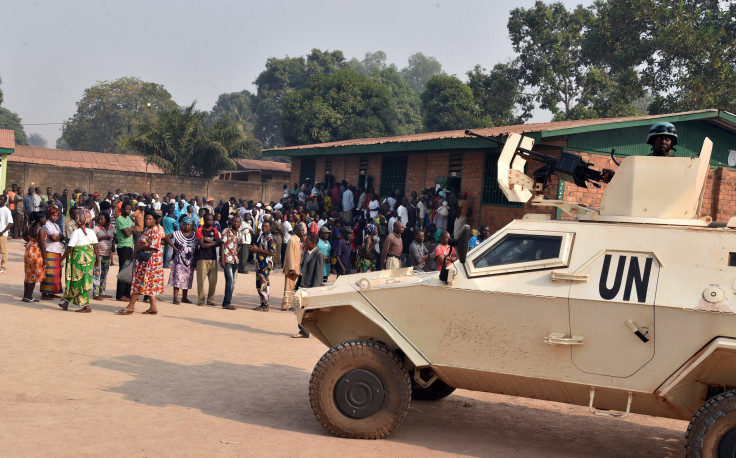How To Get Election Results For Central African Republic Presidential And Parliamentary Polls

Central Africans headed to the polls Wednesday to cast their ballots in the first round of landmark presidential and parliamentary elections aimed at restoring democratic rule in a country torn apart by years of religious bloodshed. The polls will close at 5 p.m. local time (11 a.m. EST) and provisional results will be announced in the following days. Central African Republic’s constitutional court must release final results within the next 15 days, according to Reuters.
Voters will chose from 30 presidential candidates — including two former prime ministers and sons of previous rulers — and hundreds of legislative contestants to find a replacement for interim President Catherine Samba-Panza and the transitional government. If no presidential candidate wins an outright majority, there will be a second round of voting Jan. 31.
Almost 2 million out of 4.8 million citizens were eligible to vote Wednesday at more than 500 polling stations. Booths in the capital Bangui failed to open on time due to the late arrival of ballot papers and voters’ lists. The elections have been delayed numerous times due to violence and logistical problems, with the latest date postponed from Dec. 24. Some 11,000 U.N. peacekeepers are patrolling the country to ensure that voting takes place peacefully, according to DW news agency.
Central African Republic, a Christian-majority nation, has been gripped by deadly conflict and political instability since gaining independence from France in 1960. The latest bout occurred in late 2012, when mainly Muslim groups formed an alliance known as Seleka and seized power in a coup from then-President François Bozizé. The Seleka eventually ceded power amid international pressure to form a transitional government, which was tasked with steering the nation to elections.
However, the conflict opened a security vacuum and triggered the current wave of revenge attacks by Christian militias, leading to a vicious tit-for-tat cycle of sectarian violence. Some 400,000 people have fled their homes in Seleka-controlled areas, while another 460,000 have sought refuge in neighboring countries. Despite the warring sides signing a ceasefire agreement in 2014, violent clashes persist. There are an estimated tens of thousands of fighters in the country.
Free and fair elections are key to resolving the ongoing conflict. The new government will face the challenge of disarming militias and renewing national dialogue in order to bridge the sectarian divide and revive a sagging economy.
© Copyright IBTimes 2024. All rights reserved.











